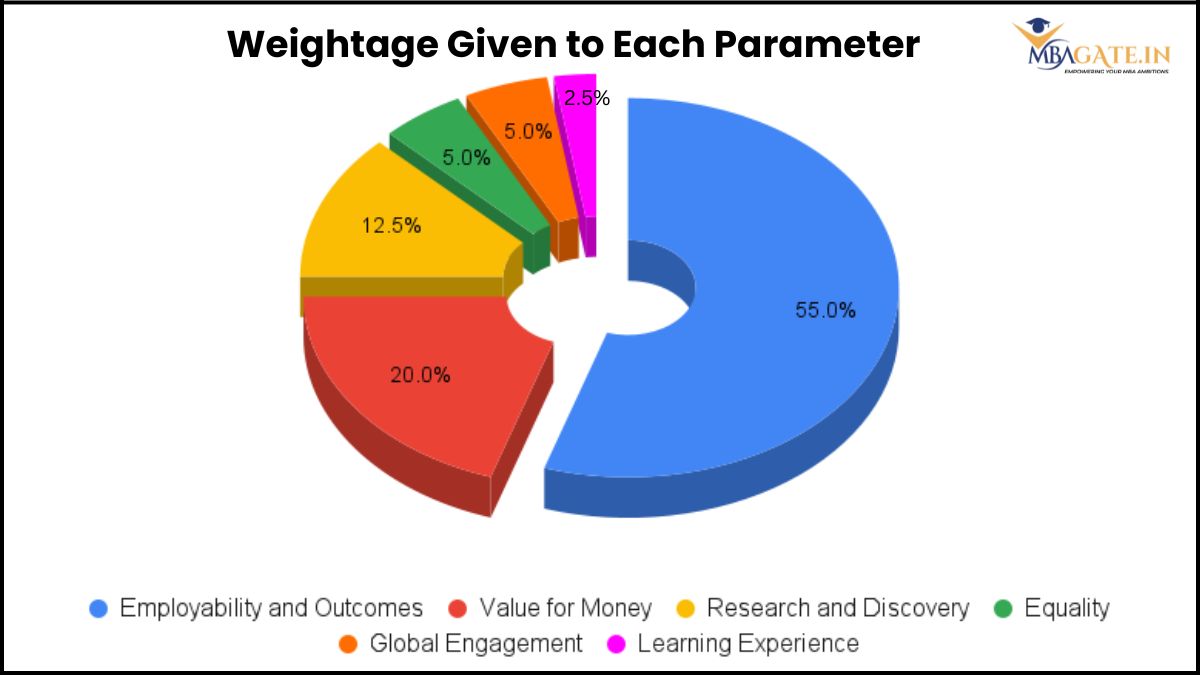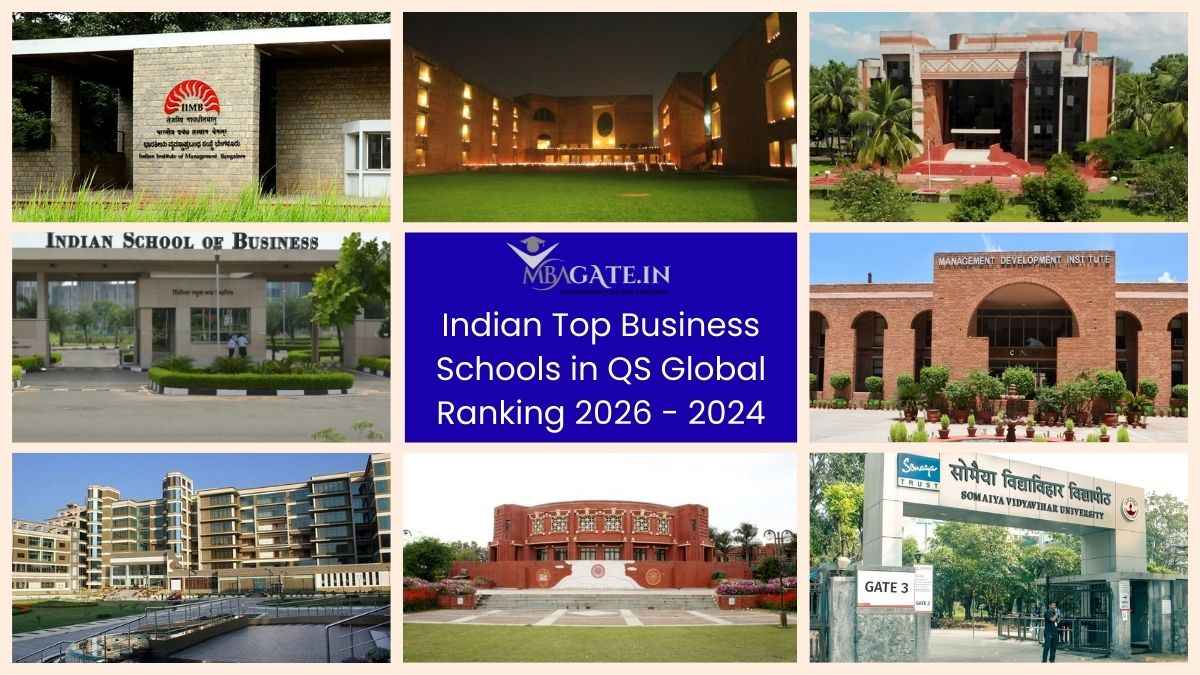QS Global MBA Rankings 2026
Table of Content
-
- + more items Show less

QS Global Ranking is a global ranking system which compares leading business schools and universities globally. For MBA aspirants, this ranking matters as it enables them to compare global B-schools across aspects such as academic reputation, employer reputation, quality of the faculty and international exposure. It gives information to the students about the reputed and well-known business schools.
For students interested in studying abroad or even analysing Indian institutes against international ones, the QS Global ranking is quite helpful. It reflects how Indian B-schools such as IIMs are among the best in the world. In comparison to other rankings such as NIRF and IIRF which are primarily concerned with Indian colleges, QS is more globally focused. NIRF ranking is released by the Indian government and is more academically oriented whereas IIRF ranks private colleges as well and emphasises placements and industry connections. Another widely recognised global ranking is the FT Global MBA Ranking which emphasises aspects such as salary increase and international career mobility.
These colleges are ranked on international parameters like academic reputation, employer reputation, international diversity and alumni success. Being ranked in the QS Global rankings not only indicates that these Indian management programs are at par with international standards but also enables them to attract international students, faculty and recruiters.
In short, having Indian MBA colleges in the QS Global rankings confirms that India hosts some really competitive and internationally admired management schools. Also, QS global rankings are useful to MBA aspirants who desire an international perspective of the best business schools and would like to make an informed decision particularly if they are considering studying overseas or comparing overseas programs with Indian programs.
What is QS Global Ranking 2026?
The QS Global Ranking also known as the QS World University Rankings, is one of the most widely regarded and followed global ranking systems for business schools and universities. It is released every year by Quacquarelli Symonds (QS), a UK-based higher education organisation. The QS ranking compares institutions globally on the basis of a set of criteria to enable students, parents and academic professionals to compare and select the top universities and MBA programs.
For an MBA, the QS Global Ranking takes into account important parameters like Employability and Outcomes, Value for Money, Research and Discovery, Equality, Global Engagement and Learning Experience. All of these parameters are given a particular weightage and employer and academic reputation have the highest significance. This renders the ranking extremely useful to MBA candidates who wish to understand just how familiar people are with a school in the job market and academe.
What is the Eligibility for the QS Global 2026 Ranking?
Eligibility for the QS Global Ranking is given below:
● A school must have either AACSB, AMBA or EQUIS accreditation in order to be included in the Global MBA Rankings. Schools with three or more QS Star ratings are also allowed.
● Have at least 20 students in every class on average.
● Have a minimum of one class that is graduating.
● Instruct full-time (or FTE) programs.
● Deliver all or part of each program on campus.
QS Global Ranking 2026 Parameters
The QS Global MBA Ranking uses an elaborate process to rank business schools around the globe. The major criteria that it takes into account include Employability and Outcomes, Value for Money, Research and Discovery, Equality, Global Engagement and Learning Experience. These are given below in detail -
● Employability and Outcomes - It encompasses employer reputation, alumni success, entrepreneurship support and graduate job placements.
● Value for Money - It focuses on return on investment (ROI) and how soon students can earn back their MBA cost through their salaries.
● Research and Discovery - It looks after a school's academic reputation and the influence of its research.
● Equality - It checks gender equality among students and teachers thus encouraging diversity.
● Global Engagement - It examines how global the business school is by looking at the proportion of foreign students and faculty.
● Learning Experience -The ranking measures how many professors have PhDs which indicates the level of academic experience.
Overall, the QS ranking assists students in selecting the appropriate MBA program by emphasising what is most important such as career outcomes, ROI, research, diversity and international exposure.
Weightage Given to Each Parameter
While ranking MBA schools, QS Global Rankings 2026 gives varying weightage to important factors that are most important to students. The most important one is Employability and Outcomes which carries the highest weightage of 55% and considers job placements and career success. Value for Money is also significant with 20% weightage indicating whether the MBA is worth the cost.
Other considerations such as Research and Discovery, Equality, Global Engagement and Learning Experience also come into play when considering the overall quality and experience provided by the management schools:

Weightage of Indicators in Each Parameter
When QS ranks MBA colleges, it divides each of the major categories into sub-parts and provides them with varying weightage. This provides a more realistic idea of how good a college is. For example under employability indicators such as employer opinion, alumni success and job placements are taken into account.
Other parameters such as Research, Equality, Global Exposure and Learning Quality are also considered with their indicators. The following table explains the importance given to each of these indicators:
Top Indian MBA Colleges in the QS Global Ranking 2026
In QS Global MBA Rankings 2026 and 2025 a few of the best Indian institutions are ranked. These colleges are not only well known for international stature but also for high return on investment and good placement. The table below lists their global rankings, fees and average placement packages to enable students to make the right choice.
Note -
● IIM Bangalore is the top ranked Indian MBA college globally.
● IIMs A, B and C are the top dogs among the top 100 international QS rankings.

Indian Top Business Schools in QS Global Ranking 2026 - 2024
An overview of the top Indian business schools' performance over the last three years in the QS Global MBA Rankings can be found below. This illustrates how major business schools such as IIMs have changed their rankings around the world to allow students to observe consistency and advancement in their reputations abroad.
Indian Management Colleges that Experienced Shifts in the QS Global Rankings 2026 - 2025
Given below is a quick review of how Indian Business schools performed in the QS Global MBA Rankings in 2025 and in 2026. A few colleges gained or remained steady while others slipped. The table shows the biggest gainers and losers making it easier for students to monitor global ranking trends.
Jumps by Indian Business Schools in the QS Global Ranking 2026 vs 2025
Drops by Indian Business Schools in the QS Global Ranking 2026 vs 2025
How QS Differs from NIRF & IIRF Rankings?
Following is an easy explanation of how QS, NIRF and IIRF MBA rankings vary from one another -
● QS Global Ranking - QS Global Rankings emphasise worldwide employability and global standing. These take into account factors such as employer reputation, research by academics and international outlook. IIM Bangalore QS Global MBA rankings 2026 is number 1.
● NIRF Ranking - NIRF Rankings are published by the Government of India. These emphasise teaching, placements, graduation rates, diversity and more. In the NIRF ranking, IIM Ahmedabad stands as the top MBA institution in India.
● IIRF Ranking - The IIRF Rankings give a lot of importance to industry-academia relationships, return on investment and quality of faculty. According to IIRF IIM Ahmedabad is number one.
All these rankings have different parameters so students should consider all three before deciding upon a business school.
FAQs
Yes, QS rankings do have an influence particularly for big recruiters such as McKinsey, BCG, Amazon and other multinational corporations. These recruiters tend to look for candidates who have graduated from globally renowned B-schools that are ranked by QS as well.
QS Rankings are renewed annually generally in June. Every year the rankings can alter depending on new information pertaining to academics, placements and employer reputation.








